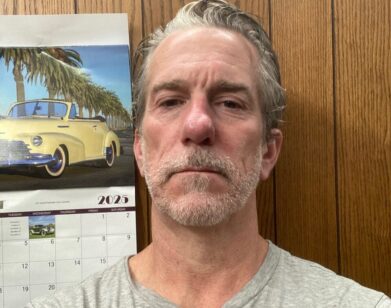Whither Norman Lear?
Mary Hartman, Mary Hartman
Critics have gotten used to citing directors as the ultimate authors of movies, but who’s really responsible for what’s on TV? Showrunners? Head writers? Network executives? In the ‘70s, writer-producer Norman Lear pioneered a kind of television so successful his name practically became a brand. Yet in an interview on the massive DVD box set “The Norman Lear Collection,” Lear gives most of the credit for his career to his collaborators, claiming only that he was “smart enough to listen.”
“The Norman Lear Collection” contains newly packaged versions of six pre-existing “complete first season” sets—”All In The Family,” “Maude,” “Good Times,” “The Jeffersons,” “Sanford & Son” and One Day At A Time—along with the first 25 episodes of the soap opera satire “Mary Hartman, Mary Hartman,” and two discs’ worth of interviews with Lear and his stars. From a consumer point of view, the set has some problems. Lear was involved with more shows than the set covers, and aside from the material on the bonus discs, there’s little here that’s not already commercially available. A more comprehensive “best of” set, favoring top episodes instead whole seasons, might’ve been a better way for this collection to go.
But as is, this set’s still pretty impressive. A lot of ink has been spilled over the years about the way Lear brought hot-button social issues to the American sitcom, and indeed it’s surprisingly bracing even today to hear his characters debate racism, homosexuality, abortion, and the root causes of poverty—and not in abstract terms, but with their own idiosyncratic opinions and personal biases laid open. Even more exciting is the way shows like “All In The Family” and “Maude” look and sound some 35 years later. Lear staged his shows like short two-act plays, shot on video in front of a live studio audience, and his actors responded with performances that were intimate and nuanced, with a lot of slow-building interplay between the characters.
In the wake of Lear, other television producers became well-known names among TV fans: James L. Brooks, Stephen J. Cannell, Aaron Spelling, Diane English, Linda Bloodworth Thompson, David Kelley and Stephen Bochco, among others. And today series creators like David Milch, Tina Fey, David Chase, J.J. Abrams, David Simon, Vince Gilligan, Joss Whedon and Matthew Weiner have helped raise TV to an artform that often rivals movies in its thematic sophistication and narrative complexity.
But no one’s making shows quite like Lear’s anymore. The best series on TV play to increasingly small audience—as do even the top-rated series, to be fair—and few shows are tackling the social problems of the ‘00s, except by whimsy or allusion. “30 Rock” mocks the excesses of the Bush administration with absurdity, but while the jokes are funny, they rarely linger enough to foment deep thought. Shows like “The Wire,” “The Sopranos,” and “Breaking Bad” engage with the corruption of institutions and the ease with which we can abandon our moral standing, but they’re essentially character studies that invite the audience to extrapolate—and they work just fine if that audience chooses not to.
Lear didn’t let his audience off the hook. His characters were deeply flawed and deeply lovable at the same time, and they talked about what irked them in straightforward ways that viewers could identify with even when they disagreed. When Lear says that his main talent was “listening,” he’s not just talking about letting his creative partners have their say; he also means that he knew what sounded right, and as the final decision-maker on the shows he produced, he made sure the characters’ arguments were both fair and funny. Nobody got to be any smarter—or any dumber—than anybody else on a Lear show.






